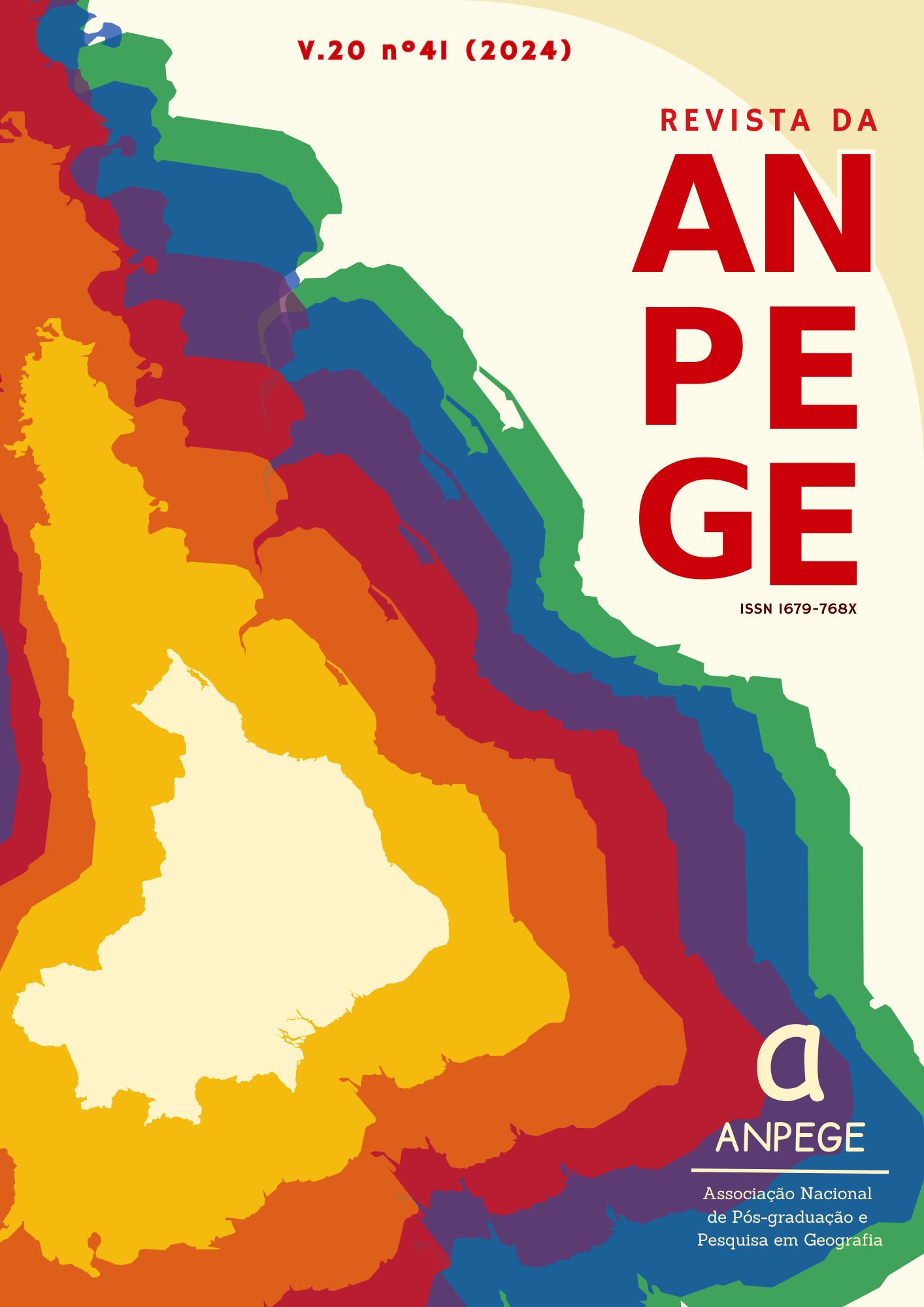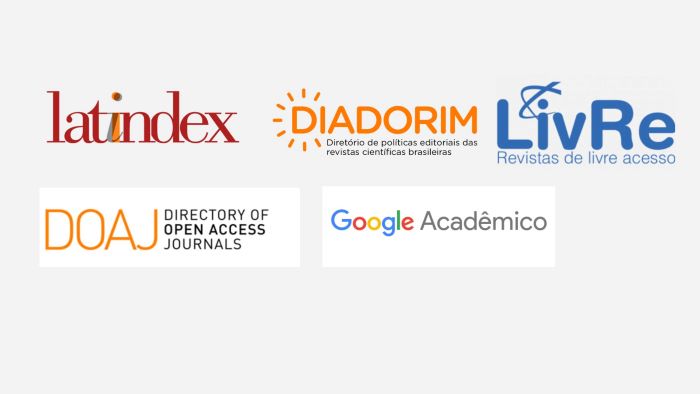Entrevista com Margaret Roberts: O currículo de Geografia e os seus fundamentos teóricos
DOI:
https://doi.org/10.5418/ra2024.v20i41.18336Palavras-chave:
Entrevista, Margaret Roberts, Currículo de Geografia, Democracia, Ensino de GeografiaResumo
Os professores Elena Lengthorn (University of Worcester) e José Gilberto de Souza (Unesp Rio Claro), trazem reflexões sobre as dimensões do currículo, envoltas em um diálogo com a professora Magaret Roberts, que tem uma história de debate e reflexão no Reino Unido e colaborou na sua construção de currículos de geografia em vários países. Margaret Roberts, esta extraordinária educadora de professores de geografia, conhecida pela sua bondade, criatividade, generosidade e perspicácia, é também uma antiga Presidente da Associação Geográfica (GA) e recebeu um MBE nas Honras de Ano Novo de 2021. Um reconhecimento muito louvável dos seus serviços à educação. Moldou uma geração de professores de geografia no Reino Unido e não só, e a sua publicação Learning through enquiry (2003) teve um impacto profundo, enriquecendo as salas de aula de geografia em todo o mundo”. Este é um debate que mergulha nos fundamentos do currículo e, em particular, reúne uma denúncia extremamente grave, também sentida no Reino Unido, nomeadamente a procura de controlo e interferência dos governos sobre os conteúdos e práticas de ensino. Uma trajetória de estruturas estatais que produzem o cerceamento de debates que nos são tão caros, como o colonialismo, a precarização do trabalho, a questão de gênero e da comunidade LGBTQIA+, a falta de democratização nos debates, a imposição de currículos, a simplificação de conteúdos, entre outros aspectos, como a privatização e a apropriação de verbas públicas da educação, marcas da lógica neoliberal que vem sendo imposta às sociedades.
Downloads
Referências
Albuquerque, A.M.A. et al. Manifesto - crítica às reformas neoliberais na educação: prólogo do ensino de geografia. Marília-SP: Lutas Anticapital, 2021. V. 1. 169 p.
Barthes A. Quels outils curriculaires pour des « éducations à » vers une citoyenneté politique ? Educations, Vol 17-1, Open sciences, International sciences and technical edition, ISTE, p. 25-40 https://www.openscience.fr/Numero-1-327. Londres, 2017.
Barthes, A., Blanc-Maximin, S., Dorier-April, E.. Quelles balises curriculaires en éducation à la prospective territoriale durable ? Valeurs d’émancipation et finalités d’implications politiques des jeunes dans les études de cas en géographie. Éducation et socialisation, n°51. Montpellier, 2019.
Barthes A. Quels curricula d’éducation au politique dans les questions environnementales et de développement ? Numéro 63, Éducation & Socialisation. Montpellier, 2022.
Connolly W-E. Discipline, politics and ambiguity. Political theory. Vol 11. n°3. 325-341. 1983.
Immordino-Yang, M. H. and Damasio, A. We feel, therefore we learn: The relevance of affective and social neuroscience to education. Mind, Brain, and Education, 1(1), 3–10.2007. https://doi.org/10.1111/ j.1751-228x.2007.00004.x
Oliveira, A. U. de. A mundialização da agricultura brasileira. São Paulo: Iandé Editorial, 2016.
Roberts, M. Geography Through Enquiry : Approaches to teaching and learning in the secondary school (2nd Edition). The Geographical Association, 2023.
Roberts, M. Learning Through Enquiry: Making Sense of the Key Stage 3 Classroom. The Geographical Association, 2003.
Rosanvallon P. La contre-démocratie. La politique à l’âge de la défiance, Paris, Seuil, 2006.
Souza, J. G. Ruy Moreira: ontonegatividade e positividade ontológica. In: FRANÇA FILHO, A. L; ANTUNES, C. F.; FERNANDES, F. M.. (Org.). O que é Geografia de Ruy Moreira: diálogos com a obra e seu autor. 1ed.Rio de Janeiro: Consequência Editora, 2023, v. 1, p. 273-296.
Souza J. G. Pensamento Espacial e a Geografia Pragmática: réquiem para o passado, Revista da ANPEGE, Vol. 18, n. 36, 2022.
Souza, J.G.; Juliasz, P.C.S. Geografia: ensino e formação de professores. Marília: Lutas Anticapital, 2020.
Suarez D.C., Kircher C. and Santi T. A Clear and Present Pedagogy: Teaching About Planetary Crisis (When You're in a Planetary Crisis). Antipode. A Radical Journal of Geography, Vol 56, issue 1, 276 – 295, 2024.
UNESCO. REIMAGINING OUR FUTURES TOGETHER, A new social contract for education. REPORT . The International Commission on the Futures of Education. UN. 2021. DOI :https://doi.org/10.54675/ASRB4722
Wall-Kimmerer R. Braiding sweetgrass : indigenous wisdom, scientific knowledge and the teachings of plants. Milkweed Editions, 2013.
Zinyemba, C., Archer, E. and Rother, H.A. Climate Change, Pesticides and Health: Considering the Risks and Opportunities of Adaptation for Zimbabwean Smallholder Cotton Growers. International Journal of Environmental Research and Public Health. 2021 Jan; 18(1): 121. doi: 10.3390/ijerph18010121
Downloads
Publicado
Como Citar
Edição
Seção
Licença
Autores que publicam nesta revista concordam com os seguintes termos:Autores mantêm os direitos autorais e concedem à revista o direito de primeira publicação, com o trabalho simultaneamente licenciado sob a Creative Commons Atribuição-NãoComercial-CompartilhaIgual 3.0 Brasil que permitindo o compartilhamento do trabalho com reconhecimento da autoria do trabalho e publicação inicial nesta revista.
Autores têm autorização para assumir contratos adicionais separadamente, para distribuição não exclusiva da versão do trabalho publicada nesta revista (ex.: publicar em repositório institucional ou como capítulo de livro), com reconhecimento de autoria e publicação inicial nesta revista.
Autores têm permissão e são estimulados a publicar e distribuir seu trabalho online (ex.: em repositórios institucionais ou na sua página pessoal) a qualquer ponto antes ou durante o processo editorial, já que isso pode gerar alterações produtivas, bem como aumentar o impacto e a citação do trabalho publicado (Veja O Efeito do Acesso Livre em http://opcit.eprints.org/oacitation-biblio.html.)
Authors who publish with this journal agree to the following terms:
Authors retain copyrights and grant the Journal the right of first publication with the work simultaneously licensed under a Creative Commons Atribuição-NãoComercial-CompartilhaIgual 3.0 Brasil that allows others to share the work with an acknowledgement of the work's authorship and initial publication in this Journal.
Authors are permitted to enter into separate, additional contractual arrangements for the non-exclusive distribution of the Journal's published version of the work (e.g., post it to an institutional repository or in a book chapter), with an acknowledgement of authorship and initial publication in this journal.
Authors are permitted and encouraged to publish and share their work online (e.g., in institutional repositories or on their website) prior to and during the submission process, as it can lead to productive exchanges, as well as increase the impact and citation of published work (See The Effect of Open Access - http://opcit.eprints.org/oacitation-biblio.html.)




